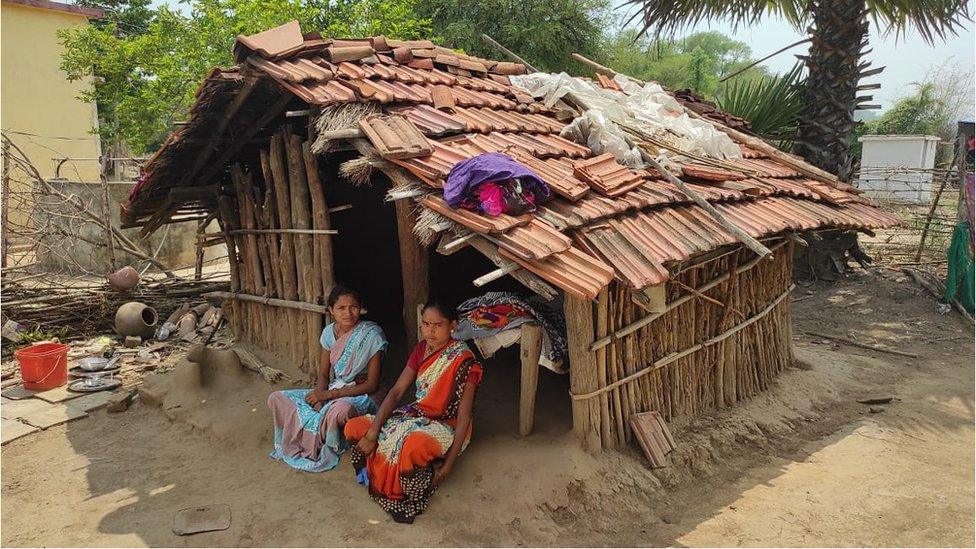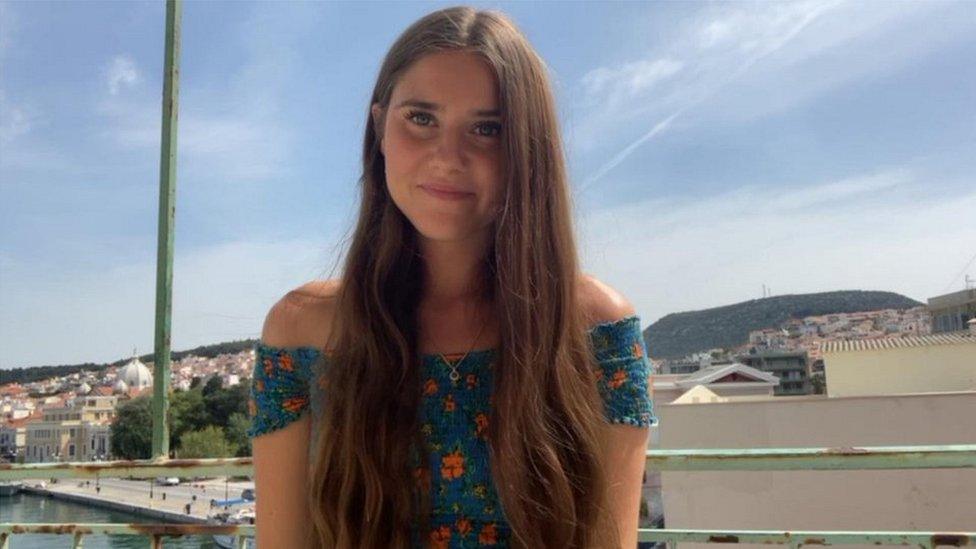Period pants founder sponsors girls' football team
- Published

Ruby Raut used her experience with periods as a teenager to create washable period pants
A woman who gave up sport because of a lack of sanitary products is sponsoring a girls' football team with the period pants company she founded.
Growing up in Nepal, Ruby Raut, of St Albans, Hertfordshire, had to make-do with scraps of fabric, which would fall out of her underwear as she played.
In 2017, she founded WUKA period pants, which include padding for protection.
She said she was "proud" but had "mixed emotions" about supporting Hertfordshire County under-16s.

Ruby Raut turned out to watch the Hertfordshire County Under-16s Girls' team play on Saturday
"I would've loved to have had something like this when I was growing up - and a lot of parents tell me the same," said Ms Raut.
"[Periods] are normal and every girl has them, but there is an embarrassment, especially among young people."
She said she hoped the team could give her feedback on its products, which she was giving them at their home ground in Watford.
'Girls sent to the cowshed'
While the players' white shorts may make the Herts players self-conscious each month, Ms Raut said the culture in Nepal surrounding periods had restricted her life from the age of 12.
"Girls in Nepal would be sent to the cowshed or menstrual hut to have their periods, and when I had mine I was sent to my aunt's," she said.
"We would be given our own cups and plates which were passed to us across the floor.
"We were not allowed to touch another human being, or touch plants, or go out to see the sun."

WUKA advertises its clothing as leak-proof and is now a global brand that encourages women to embrace their "true selves"
Towels and tampons were not available and loose-fitting underwear, which was the norm, meant fabric off-cuts would fall out.
"This happened many times, myself included, and it created that shame and embarrassment around periods, and you slowly start giving up on sports," said Ms Raut.

Ms Raut said she hoped her period pants would encourage girls to keep playing sports
She said it stayed with her, and she used the concept of pinning fabric into underwear to create WUKA in 2017.
"I took that idea, bought a second-hand sewing machine and pressed fabric into a pair pants and built it up - they were really comfortable.
"You can take them off, wash them, and I thought 'you could give these to an 11-year-old and you wouldn't have to show them how to use menstrual products'.
"I am really proud that the next generation - my kids and grandchildren - will grow up using something that doesn't cost the earth," she said.

Find BBC News: East of England on Facebook, external, Instagram, external and Twitter, external. If you have a story suggestion email eastofenglandnews@bbc.co.uk, external
- Published13 September 2021

- Published15 August 2021

- Published4 June 2021

- Published3 May 2021
